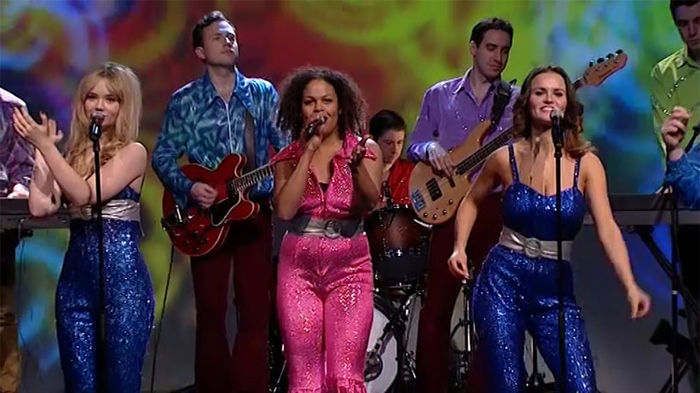The magic of soundtracks
Columnist Daniel Starkey reflects on why soundtracks are so special and what they can tell us about about our favourite programmes

Soundtracks for me are, in many ways, the heart and soul of a good TV show or film. Without the songs they use, they just wouldn’t be the same. There are a couple of reasons why I love a good soundtrack. They can be a great way to introduce younger generations to new (or should I say old!) music. I’m slightly embarrassed to admit that my love for my all-time favourite band, Led Zeppelin, was almost exclusively sparked by the use of “Immigrant Song” in Thor: Ragnarok.
But that’s the wonderful thing about a soundtrack! They introduce us to songs and make them stick in our minds. I find that associating a song with something else makes it so much more memorable and enjoyable. Often, I’m not particularly enthused to hear a random song but when I first hear it in a soundtrack and then encounter it again later, I can say: “Oh, it’s the song from …”. This association makes the act of listening more enjoyable. Part of the reason for this is, I think, the second thing I love about soundtracks.
“With a flood of classic 90s tracks from Salt-N-Pepa to Blur, we’re immersed in the sounds and emotions of the times we see unfolding on screen”
Soundtracks communicate with audiences; they are not just there for background ambience! They help deliver two things. First is temporality: we are immersed in the show’s time setting, capturing the (a word that’s horrendously overused but serves well here) zeitgeist; the spirit of the time or what it “felt like” to be there. They can also communicate mood and emotion, acting as a window into the heads of the characters to let us know what’s going on and how we should feel.
I have a few examples of my favourite TV programmes, and what I particularly love about their soundtracks.
Derry Girls is set in the 1990s. It’s a time that, while it may be advancing further and further into the past alarmingly quickly with every passing year (I still remember the days when “the 90s” meant 10 years ago!), still doesn’t look or feel too different from our own. Apart from the odd car or PC, and of course references to its central theme of the Troubles, there’s not too much to distinguish its time from today. That’s where the soundtrack steps in. With a flood of classic 90s tracks from Salt-N-Pepa to Blur, we’re immersed in the sounds and emotions of the times we see unfolding on screen. Some fit in absolutely perfectly. My personal favourite has got to be The Cranberries’ “Zombie”, set against the backdrop of the IRA ceasefire celebrations, later in the second series. It’s so strongly linked, both temporally and thematically, to what we see on screen.
“Peaky Blinders freely uses music to reinforce the plot and its character dynamics”
Much is the same for Life on Mars and Ashes to Ashes which are set in 1973 and 1982 respectively. As well as establishing where we are in time, music also distinguishes the shows and their settings from one another. One of my favourite scenes in Ashes to Ashes, is when the time-travelling protagonist Alex Drake (from 2008) enters a room full of 1980s computer equipment, and is told: “It’s like Tomorrow’s World, isn’t it?” as we hear Tubeway Army’s “Are ‘Friends’ Electric?” playing. This moment conveys a strange and wonderful antiquated sci-fi futurism as we’re catapulted into a whole new time period, directly contrasting to Life on Mars’ comparatively quaint world of glam rock and 35p Manchester Derby tickets. The choice to name the shows after Bowie songs is an interesting one and reflects each of their distinct moods: the sweeping and mysterious Life on Mars and the macabre and reflective Ashes to Ashes.
Peaky Blinders’ soundtrack is so anachronistic it’s almost laughable at first glance. To see 1920s gangsters in three-piece suits strutting around to a whole host of modern music, from Black Sabbath to Arctic Monkeys, is nothing like your average costume drama. It doesn’t exactly scream “spirit of the time”. Yet here’s the thing: we don’t need music to tell the time here, the job is already done perfectly through the costumes, smoking chimneys and vintage interior furnishings. Instead, Peaky Blinders freely uses music to reinforce the plot and its character dynamics, conveying a “language” that we can readily understand as modern listeners. The music evokes the swaggering stylishness of the characters and the show in general. It’s like we’re being invited to see these characters as rock stars from the 1920s. “Red Right Hand”, the show’s closest thing to a theme song, was noticeably absent in its last series which some were disappointed by. However, while the song’s gothic, yet somewhat swaggering, nature fits the show perfectly in its early seasons, it doesn’t fit as well in the show’s darker, more brooding later seasons to me. As the tone of the show evolves, so must its music.
 News / Candidates clash over Chancellorship25 April 2025
News / Candidates clash over Chancellorship25 April 2025 News / Cambridge professor paid over $1 million for FBI intel since 199125 April 2025
News / Cambridge professor paid over $1 million for FBI intel since 199125 April 2025 Interviews / Dr Ally Louks on going viral for all the wrong reasons25 April 2025
Interviews / Dr Ally Louks on going viral for all the wrong reasons25 April 2025 Music / The pipes are calling: the life of a Cambridge Organ Scholar25 April 2025
Music / The pipes are calling: the life of a Cambridge Organ Scholar25 April 2025 Comment / Cambridge students are too opinionated 21 April 2025
Comment / Cambridge students are too opinionated 21 April 2025







